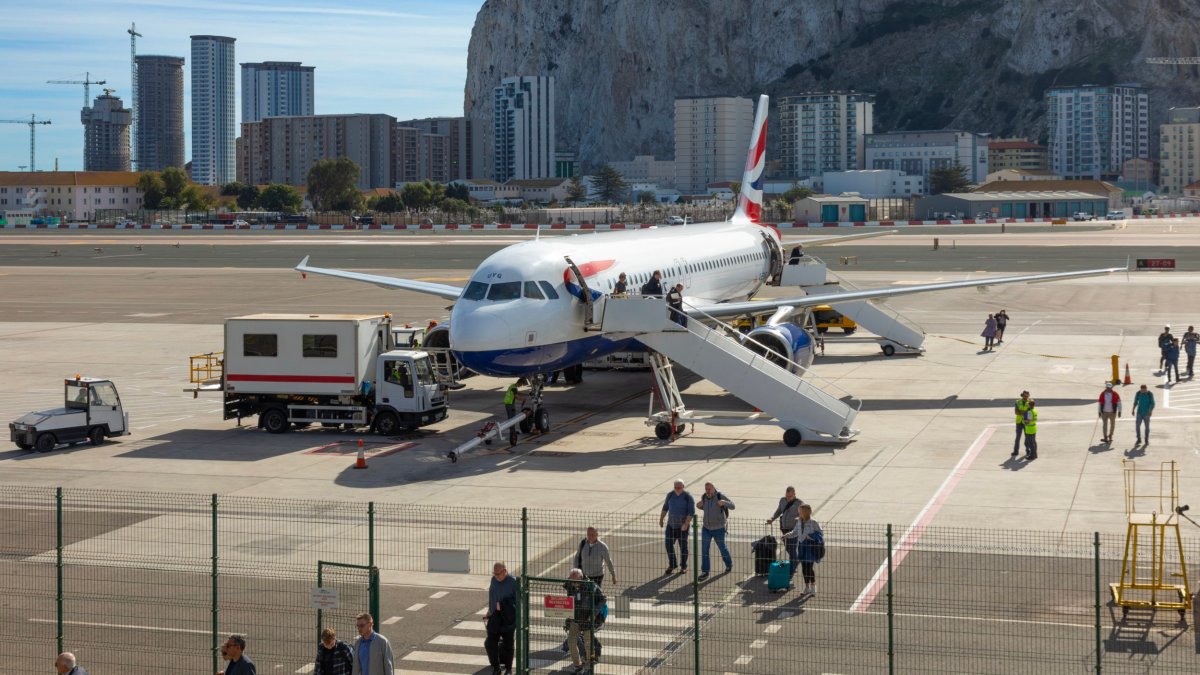The authorities have been forced to pause residency applications because of the newfound popularity of the Rock
MADRID – Britons are queuing up to move to Gibraltar after a post-Brexit deal was agreed, with authorities this month forced to pause residency applications because of the newfound popularity of the Rock.
The status of Gibraltar and how to police the border with Spain had been points of contention since Britain voted in 2016 to leave the European Union.
In June, the EU and Britain reached an agreement on the status of Gibraltar that ended years of political uncertainty.
New FeatureIn ShortQuick Stories. Same trusted journalism.
Gibraltar residents will enjoy the unique ability to travel around the Schengen area without being subject to the post-Brexit rule that restricts Britons to staying in Europe for just 90 days in every 180.
Paul Duck, managing director of Chestertons, the biggest real estate agent in Gibraltar, told The i Paper that “hundreds” of people have expressed an interest in buying or renting properties on the Rock since the announcement of the deal last summer.
The final agreement is expected to be signed by the New Year and must later be agreed by the UK and EU parliaments.
Duck said it felt almost “like Christmas Eve because of what is going to happen in the New Year”.
At least 3,000 people were granted residency in the past two years to live in the enclave at the southern tip of Spain, which has been under British rule since the 18th century.
To avoid being swamped by more arrivals, the Gibraltar government temporarily “paused” new applications on 6 October to ensure they are people who can show they will contribute to the local economy.
After a long period, when businesses did not know if they faced a hard Brexit deal, a quiet hum of business confidence has returned to the Rock.
Since the deal was announced, empty shops on Main Street, Gibraltar’s main shopping thoroughfare, have been replaced with two branches of Starbucks, a Mango store and the Häagen-Dazs ice cream shop.
Owen Smith, chairperson of the Gibraltar Federation of Small Businesses, said the arrival of Starbucks was significant as it showed a major international franchise had confidence in the Rock.
He said the ability to travel around the Schengen area has made moving to the Rock more attractive.
“Many of us feel surprised that the agreement is going to deliver some of the things it is going to deliver given where we might have ended up after Brexit. Ironically, while Britain is moving further away from Europe, we have moved closer to Europe,” he told The i Paper.
“This is attractive for a lifestyle and a business point of view. I would strongly agree that the mood is positive. Everyone is waiting with bated breath to see the terms of the final text which will be published soon.”
A spokesman for the Gibraltar government said it was necessary to pause the number of residency applications or the Rock’s education and health service might have been overcome. Gibraltar has a population of 40,126 and an area of 6.8 square kilometres (2.6 square miles).
Brian Reyes, editor of the Gibraltar Chronicle, said: “It is exciting times. There is a real buzz. People are still concerned about the detailed terms of the deal, but I think people are a little bit more relaxed about it now. It has been four years with all the ups and downs.”
The deal marks a conclusion to talks that have dragged on since Britain officially left the EU in 2020. It means Gibraltar residents can cross borders using residence cards without needing to have their passports stamped. Spanish citizens can cross using a government ID card.
Passport controls have occasionally been re-established in tit-for-tat disputes, however, causing massive queues for up to 15,000 cross-border workers.
Under the agreement, those arriving at Gibraltar airport will show their passports to both Gibraltar and Spanish border officers.
The Foreign Office said the system would follow a similar model to French police operating in St. Pancras station, where the Eurostar train connecting Britain with mainland Europe runs from.
It added that the agreement would provide a practical solution to avoid the need for what it described as “onerous checks” and long delays at the border.
